Up to 1 in 3 adults worldwide suffer from Insomnia. In this article I’ll provide you with 9 sleep preparation tips that’ll help you prepare for a deeper night sleep.
Secondly, I share 7 underlying causes of insomnia and how to treat them with natural solutions.
What is Insomnia?
Insomnia is the difficulty falling and/or staying asleep and not being able to fall back to sleep.
There are three types of Insomnia.
Firstly, there’s transient insomnia, which is difficulty falling or staying asleep for less than one week. If this continues for up to three weeks, it’s now considred acute insomnia
When this continues for at least three nights per week for three months or more, it’s chronic insomnia.
9 Steps For A Deeper Sleep
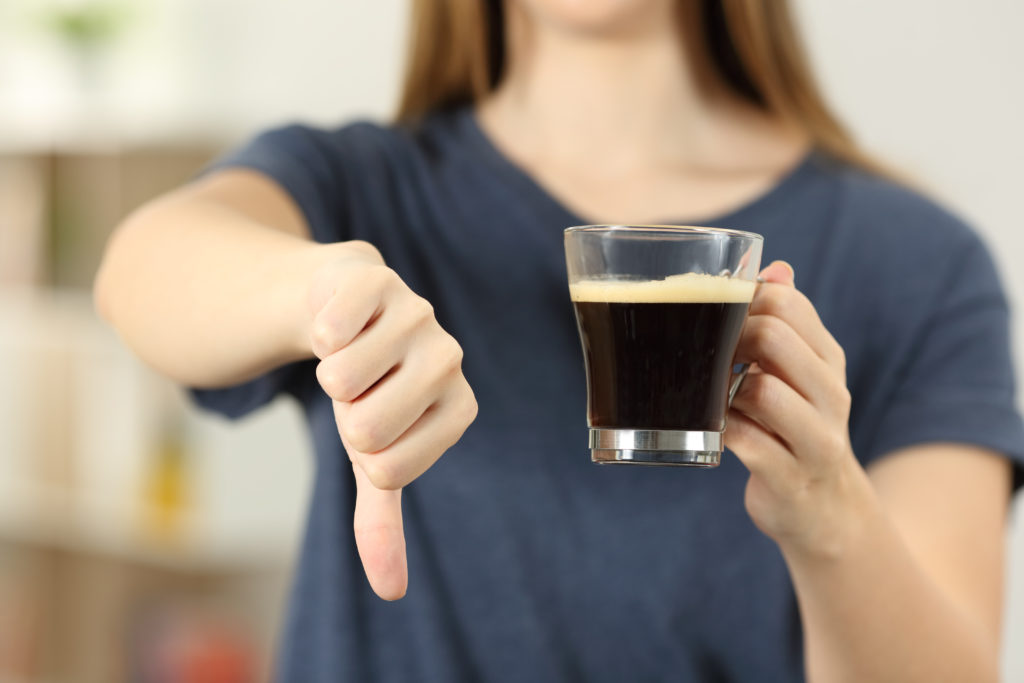
The good news is that applying the following sleep preparation steps can be all some people need to improve their sleep.
Generally, it’s best to try the following sleep preparation steps first before and/or in combination with other therapies .
1. No caffeine & nicotine after 2pm
This includes coffee, caffeinated teas, alcohol, chocolate and cigarette smoking. Why?
When caffeine is consumed within 6 hours of going to bed it can delay the timing of our internal body clock (a sleep/wake cycle that signals our body when to be alert and when to rest).
If our body clock is interfered with, it changes our circadian melatonin rythyms that regulate our sleep. This results in a delayed onset of sleep.
Caffeine is also a diuretic, which may cause you to wake up to use the bathroom.
2. Sleep in a dark/quiet room
What triggers hormones such as melatonin to signal our body to go to sleep? Darkness.
Darkness prompts the pineal gland to release melatonin, which turns into serotonin. These hormones help us sleep!
Any appearance of light and noise can be enough to block the release of melatonin and therefore impact our sleep. As the sun sets, keep lights dim and avoid bright light when preparing for sleep.
3. Keep room temperature between 16-22 degrees celcius
What also helps melatonin release? A cooler environment. We need adequate melatonin release to ensure we sleep throughout the sleep stages. A room that is too hot or icy cold can increase wakefulness, decrease rapid eye movement and slow wave sleep.
4. Go to bed & wake up at the same time
Experiment with different sleep times that feels right for you. Listen to your body when you start to feel sleepy. The most important thing is to wake up at the same time each morning.
Sleeping an extra hour on weekends can be fine, however if you wake at 6am on weekdays and 11am on weekends your sleep rhythms will be thrown off.
5. Ensure a regular pulse rate (60-80 beats per minute)
Can you hear or feel your heart beating fast at night? A pulse rate between 60-80 beats per minute (BPM) is optimal. However, when it goes above 80 bpm and higher, it can make it difficult to sleep.
This can often be caused by a deficiency of potassium, excess salt intake, anxiety, underlying heart problems or chronic stress. There are also Chinese medicine herbal formulas that work really well for this problem.
6. Slow down your breathing
Exhalation (breathing out) is longer than inhalation (breathing in) during episodes of distress. Aim for equal inhalation and exhalations to support relaxation and a normal heart rate. Repeat 5 seconds in and 5 seconds to make it easier to fall to sleep.
7. Sleep on your right with a fatty liver
Our heart is positioned on the left side of our chest cavity and our liver is on the right. Excess weight and a fatty liver puts pressure on your heart. This may restrict blood flow to the heart and impact our ability to sleep.
8. Reduce muscle cramping & pain
Electrolyte powder with magnesium and potassium, pickle juice, Chinese herbal medicine formulas all work well to resolve muscle cramps. If pain is the issue, focus on the cause of your pain with acupuncture, chiropractic, osteopathy and physiotherapy before using strong medications.
9. The bedroom is for sleep and intimacy
Doing anything that isn’t sleeping or intimate time with our partner can cause our brain to associate our bed with wakefulness.
7 Underlying Causes of Insomnia
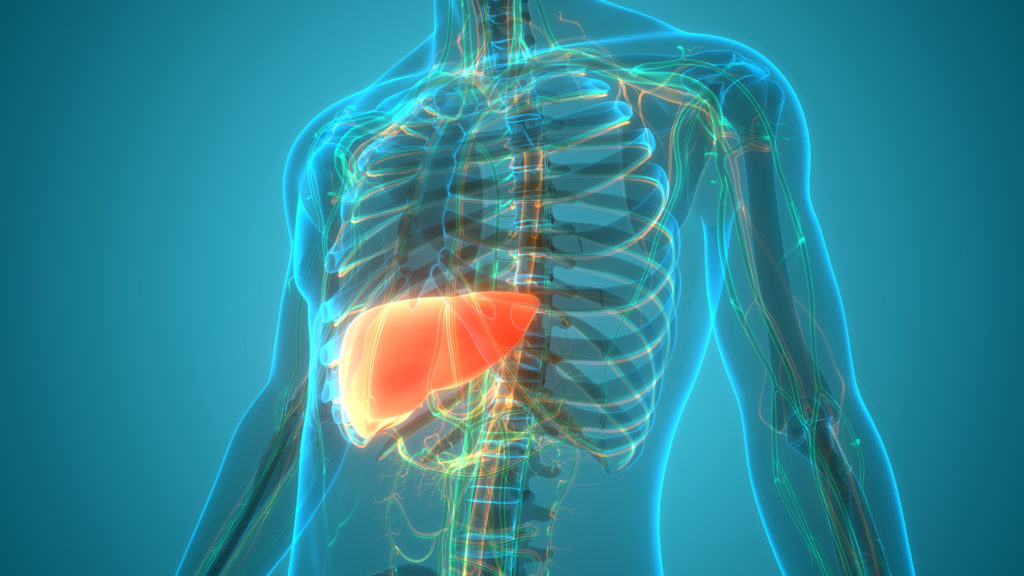
If you’re like many others, you may have tried sleep preparation steps but you’re still having trouble sleeping.
So, you might be wondering, how do we treat underlying problems causing our inability to sleep?
Grab out a pen and paper because in the next part of this article, I’ll be sharing the seven most common underlying causes I see in my clinic from a Chinese medicine perspective and how to fix them.
1. Heart Blood Stasis
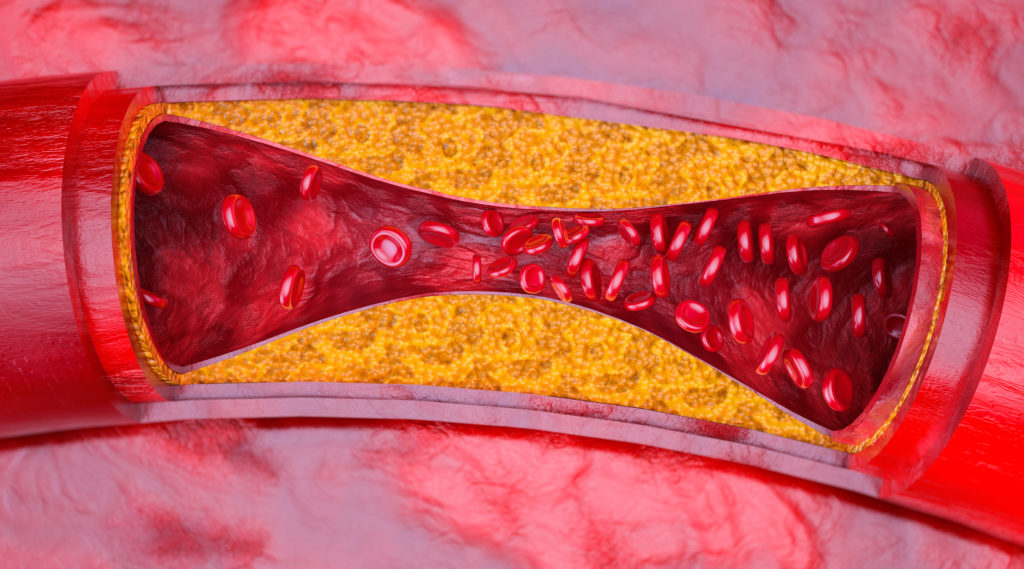
One of the most common causes I see in my clinic is heart blood stasis.
This is a Chinese medicine term, however it’s closely associated with how we think about cardiovascular disease.
Not only does this lead to trouble sleeping. It’s also the number one cause of death on the planet.
It’s for this reason, I’ll spend extra attention on heart blood stasis in this article. .
What is heart blood stasis?
Heart blood stasis is the inefficient supply of blood (Xue), oxygen (Qi) and nutrient (Ying qi) to and through the heart and the surrounding arteries and blood vessels (Xue Mai).
From what I’ve observed, patients don’t need 70, 80, 90% + blockages or restrictions to experience problems.
Based on my clinical experience, the human body shows us warning signals well before late stage problems develop.
In fact, the Chinese have been pointing out these early warning signals for centuries!
That is, difficulty sleeping is one of the early symptoms of heart blood stasis.
Insomnia is a warning signal for some of us
The good news is that these warning signals present well before a diagnosis of cardiovascular disease has been made.
In my opinion this is very important to pay attention to.
Why? Because the majority of coronary blockages are not identified until 70, 80, 90% restrictions of blood flow have already developed!
Sadly, in many circumstances, patients are not aware of any issues even before major cardiac events.
This is why cardiovascular disease kills more people than any other disease on the planet.
The current reality is that early, middle and late stages of cardiovascular disease often go untreated.
This highlights the different approach between allopathic medicine vs Chinese medicine.
Allopathic medicine & Chinese Medicine
In allopathic medicine, when a patient presents with trouble sleeping, they’re often given medication to force them to sleep. That is, without treating the reason why they’re not sleeping in the first place.
In this case the doctor treats the symptoms and hopes and prays that the underlying problem will resolve itself.
Wheras in Chinese medicine the underlying problem e.g. heart blood stasis is diagnosed and treated first. The doctor expects the symptoms go away as the underlying problem resolves.
In fact, it’s common for patients to be told that their insomnia is just a normal part of aging.
However, not enough doctors step back and realise that AGING IS THE AGING OF THE VASCULAR SYSTEM!
This means that when our heart and the surrounding arteries and vessels are not receiving sufficienct blood, oxygen and nutrient, our ability to sleep will be impaired.
There is data pointing to such links.For example, 44% of patients with heart and circulatory problems report trouble sleeping.
How to Treat Heart Blood Stasis with Chinese Medicine
Preventing the onset can be supported with a wholefood diet. That is avoiding processed sugars, smoking and alcohol and eating plenty of fresh vegetables, healthy proteins and fats.
Once a diagnosis of heart blood stasis is made, the focus is to increase blood, oxygen and nutrient circulation to the heart.
This is possible by using a class of Chinese herbal medicines called “blood movers“.
Blood movers work in a number of ways. Many key herbs vasodilate (expand) blood vessels to increase the flow of blood.
Each prescription should be based solely on the individual patient. Here are some of the key blood movers I like to use to resolve heart blood stasis causing insomnia.
- Xue Fu Zhu Yu Tang (English: Drive out stasis in the mansion of blood decoction)
- Dan Shen (Radix Salviae Miltiorrhizae)
- Yan Hu Suo (Rhizoma Corydalis)
- Chuan Xiong (Rhizoma Chuanxiong)
- Dang Gui (Radix Angelia Sinensis)
- He Huan Pi (Cortex Albizziae)
- Suan Zao Ren (Semen Zizyphi Spinosae)
2. Heart Blood Deficiency
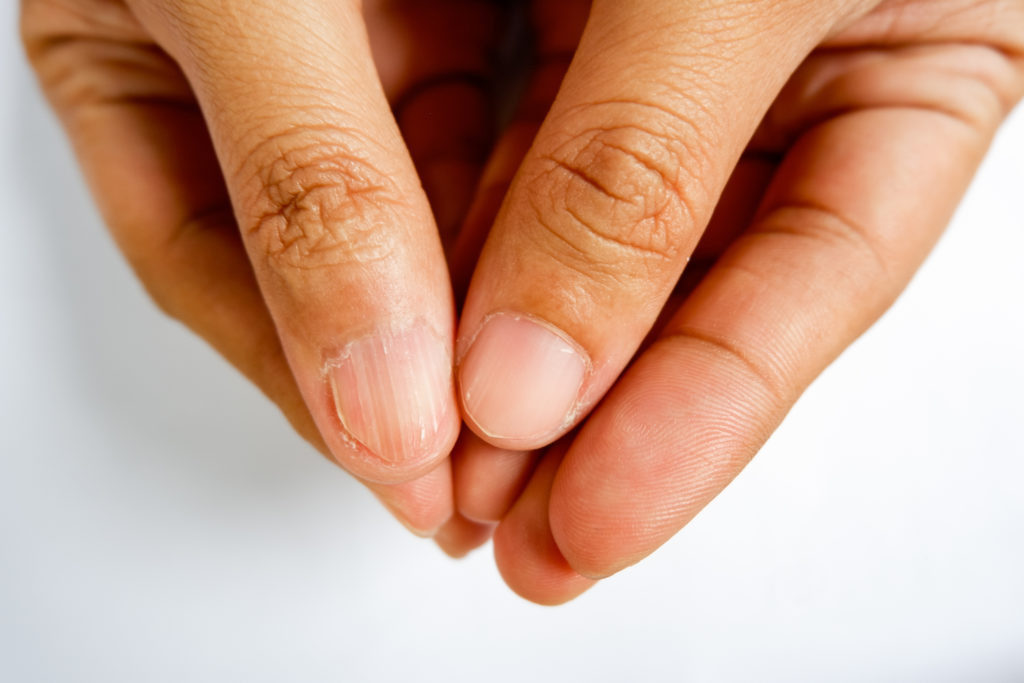
Heart Blood deficiency is when there isn’t enough blood nourishing the heart.
This can be due to poor arterial flow (blood stasis), blood deficiency and or iron deficiency anemia.
In case you didn’t know, our heart is blood, oxygen and nutrient hungry. In fact, it beats over 100,000 times per day without our conscious awareness!
This means the heart requires a continuous supply of nutrient to function optimally. If the heart doesn’t receive a rich supply, symptoms start to appear even in the earlier stages.
The key symptoms the Chinese identified are difficulty staying asleep (light sleep), but also timidity, crying easily, anxiousness and heart palpitations.
Two Common Causes of Heart Blood Deficiency
Low Stomach Acid
What does stomach acid have to do with blood deficiency?
If our stomach and digestive system isn’t breaking down food sufficiently into nutrient, iron, blood etc. the heart will suffer.
In fact data points to a clear association between low stomach acid and iron deficiency anemia. In this case, we must build up our stomach acid to restore the proper absorption of nutrient from our food.
The good news is that this can be reversed by taking a high quality supplement containing betaine hydrochloride and pepsin.
Excess Endurance Exercise
Prolonged, endurance exercise overworks the heart muscle. I see this in the vast majority of endurance athletes. These athletes overwork their heart so much so that they come in with very weak radial pulses.
Such weak and thin radial pulses indicate a weak heart pump according to Chinese medicine. Their heart is overworked.
Think about this.
During a marathon or ultra long distance event. Unthinkable amounts of blood gets shoved away from the heart and redirected into the legs.
How to Treat Heart Blood Deficiency
The underlying issue is that the heart muscle is too weak. So we need to build it back up.
We can treat this indirectly by ensuring stomach acid levels are sufficient and the diet is rich in nutrient. A stomach acid supplement may be needed if the patient has low stomach acid.
Or we can treat it directly, through Chinese herbal medicine.
This is not personal medical advice. However, here are some of the the following Herbal medicines that help nourish the heart and improve insomnia.
- Ren Shen Yang Yin Tang (Ginseng Formula to Nourish the Nutritive Qi)
- Yang Xin Tang (nourish the heart dectoction)
- He Huan Pi (Cortex Albizziae)
- Suan Zao Ren (Semen Zizyphi Spinosae)
- Ye Jiao Teng (Caulis Polygoni Multiflori)
- Dang Gui (Radix Angelicae Sinensis)
- Shu Di Huang (Radix Rehmanniae Preparata)
- Fu Shen (Scierotium Pararadicis Poriae Cocos)
- Long Yan Rou (Arillus Longan)
3. Heart Fire/Trapped Heat
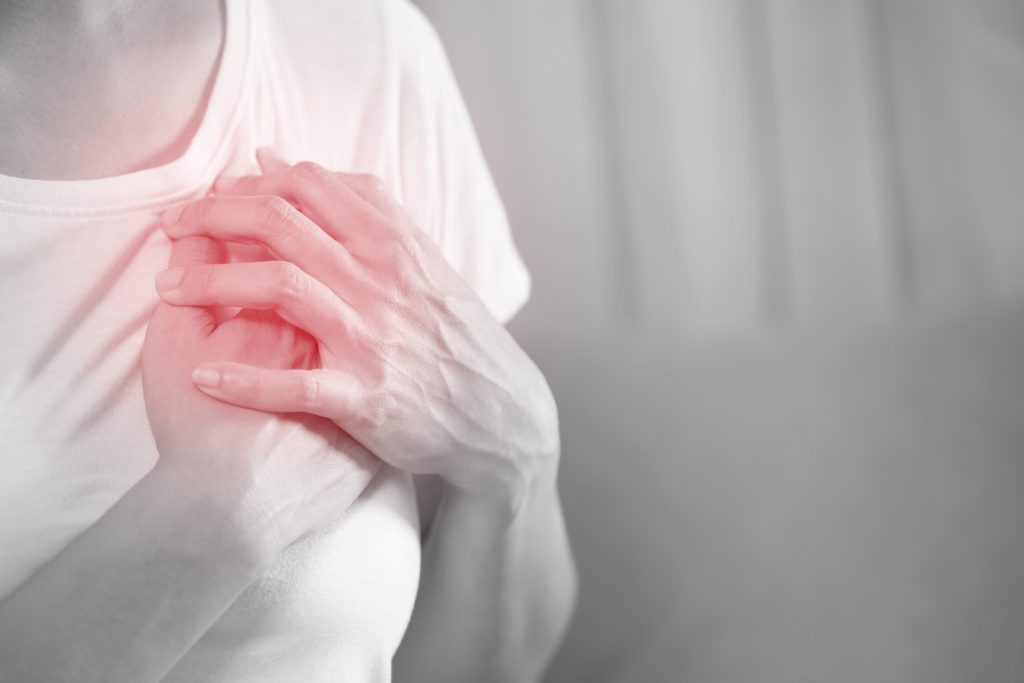
The ancient Chinese use the words heat and fire to described problems similar to inflammation.
For example with inflammation comes redness, swelling, inflamed tissue and the area will be warm/hot to touch.
These are all characteristics of heat and fire.
Clinically, the diagnosis of heart heat/fire is closely associated with mild and acute pericarditis and myocarditis.
This is actually more common than most would think! I see heart heat/fire at least 1-2 times per day in my clinic.
Interestingly, this does not usually present as an acute problem, but a chronic problem that a patient has had for years.
It usually develops after a viral or bacterial infection that irritates the heart and/or pericardium.
However as it subsides the patient may continue to have mild form of inflammation, which messes with their ability to sleep.
These patients particularly experience a restless sleep. Other symptoms often include mood swings, fatigue, brain fog, poor concentration and sometimes heart palpitations.
How to Treat Heart Fire
The heart is inflamed and needs to be cooled off.
We have a number of Chinese herbal medicines to choose from. Here are examples of Chinese medicines I use for heart heat/fire accompanied with insomnia.
- Huang Lian (Rhizoma Coptidis)
- Wen Dan Tang (Warm Gallbladder Decoction)
- Yuan Zhi (Radix Polygalae)
- Huang Qin (Radix Scutellariae )
- Xie cao (Valarian)
- Lian Qiao (Fructus Forsythiae )
- He huan pi (Cortex Albizziae)
- Ci shi (Magnetitum)
- Zhen zhu mu (Concha Margaritaferae Usta)
- Long gu (Fossilia Ossis Mastodi)
4. Damp Heat with Blood Stasis In The Liver
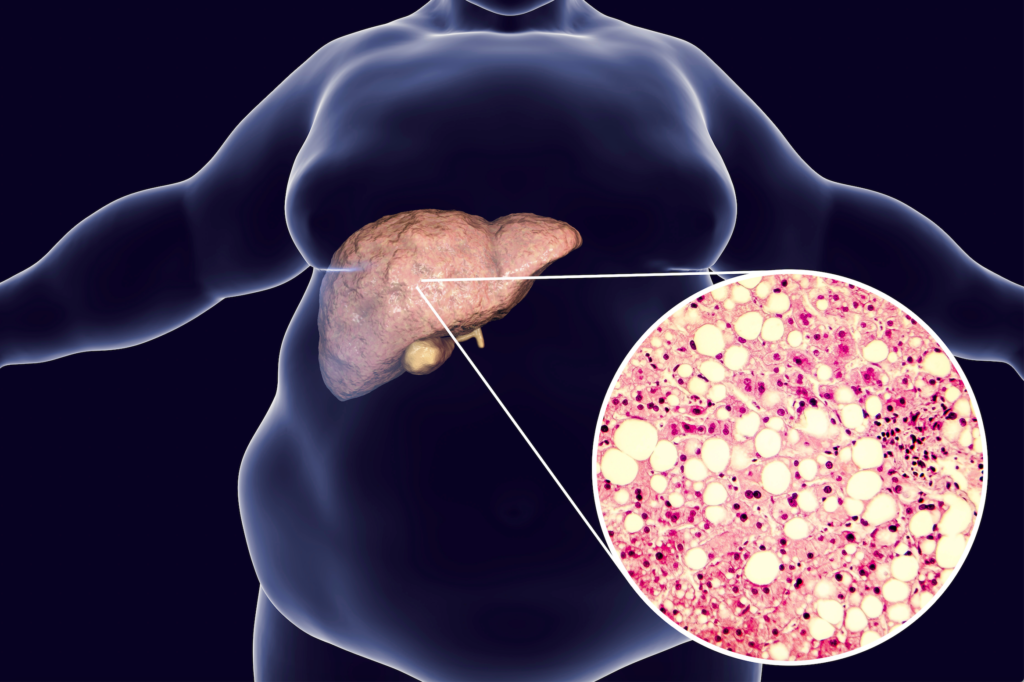
Damp heat with blood stasis in the liver is basically describing a clogged up liver, similar to a fatty liver.
In this scenario the liver is congested and fatty causing a poor blood circulation through the liver.
Such links between such conditions of the liver and insomnia is not only documented in Chinese medicine.
New data shows direct links between individuals with Non Alcoholic Fatty Liver Disease (NAFLD) and sleep disorders.
In a multivariate analysis, having any sleep disorder, including sleep apnea and insomnia were independently associated with having NAFLD.
What Causes A Fatty Liver?
There are a number of contributing factors including a high sugar diet, low stomach acid, overuse of medication and side affects of some medications.
Other factors include high levels of stress or distress.
During dis-stress, natural killer cells (NKT) have been shown to expand in the liver. In some cases, even contribute to liver cell death and worsening of liver disease.
Other findings have shown how the part of the brain that controls the liver is affected by distress. Distress was found to impair blood flow to this region of the brain and may contribute to and/or trigger liver damage!
The Liver, Emotions & Insomnia
When it comes to Chinese medicine, the liver has long been seen as an organ directly affected by excessive emotions such as anger and frustration
The Chinese documented associations between patients with liver diseases such as damp heat with blood stasis and patients with a short temper, anger and frustration.
These emotions affect our ability to sleep deeply.
The other way a fatty liver can impact a person’s sleep is by sleeping on the left side.
When laying on our left side, the fatty liver may push closer to the heart, creating pressure and reduced blood flow to the heart.
Restricted blood flow to the heart has a direct effect on our ability to sleep.
How To Treat Damp Heat With Blood Stasis
A wholefood diet will go a long way to reverse a fatty liver.
That is, avoiding processed sugars, carbs and filling your day with plenty of vegetables and healthy proteins.
However, when it comes to Chinese medicines I often use variations of the following herbs for insomnia.
- Long dan xie gan tang (Gentiana Longdancao Decoction to Drain the Liver)
- Yin chen hao tang (Artemisiae Scopariae Decoction)
- Ge xie zhu yu tang (Drive Out Blood Stasis Below the Diaphragm Decoction)
- Zhi zi (Fructus Gardeniae)
- Zhi mu (Rhizoma Anemarrhenae)
- Yuan zhi (Radix Polygalae)
- He huan pi (Cortex Albizziae)
- Guan ye Lian qiao (St John’s wort)
- Lian qiao (Fructus Forsythiae)
- Xie cao (Valarian)
- Long yan rou (Arillus Longan)
- Ci shi (Magnetitum)
5. Liver Heat/Liver Fire
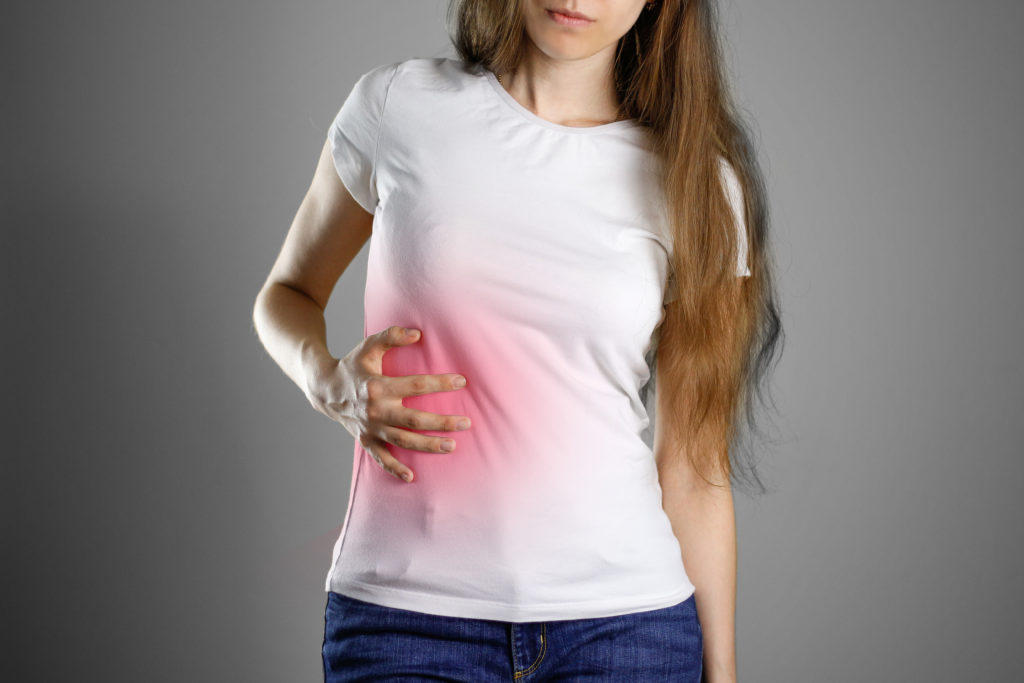
Liver Heat/Fire is a descriptive word to describe an irritated liver.
What Causes Liver Heat & Liver Fire
There are varioud possible causes. The most common being a poor diet including eating too much spicy food, caffeinated drinks and alcohol. High levels of stress for a prolonged period of time are also common.
Most of us understand how a poor diet can affect our liver but how can too much stress irritate the liver?
One example is the link between psychological stress and liver inflammation. During periods of mental stress, both IL-6 and TNF-α can be induced within the liver.
This suggests a link between psychological stress and hepatic inflammation.
How To Treat Liver Heat and Liver Fire
The first step to take is to ensure you’re making the correct dietary changes.
Dealing with factors contributing to stress is also very important.
When it comes to using Chinese herbal medicine, here are some of the most common herbs I use for insomnia.
- Long dan xie gan tang (Gentiana Longdancao Decoction to Drain the Liver)
- Zhi zi (Fructus Gardeniae)
- Long gu (Fossilia Ossis Mastodi)
- Zhen zhu mu (Concha Margaritaferae Usta)
- Ci shi (Magnetitum)
- Xie cao (Valarian)
- Xia ku cao (Spica Prunellae)
- Hu zhang (Rhizoma Polygoni Cuspidati)
- Suan zao ren (Semen Zizyphi Spinosae)
- He huan pi (Cortex Albizziae)
6. Stomach Heat/Fire
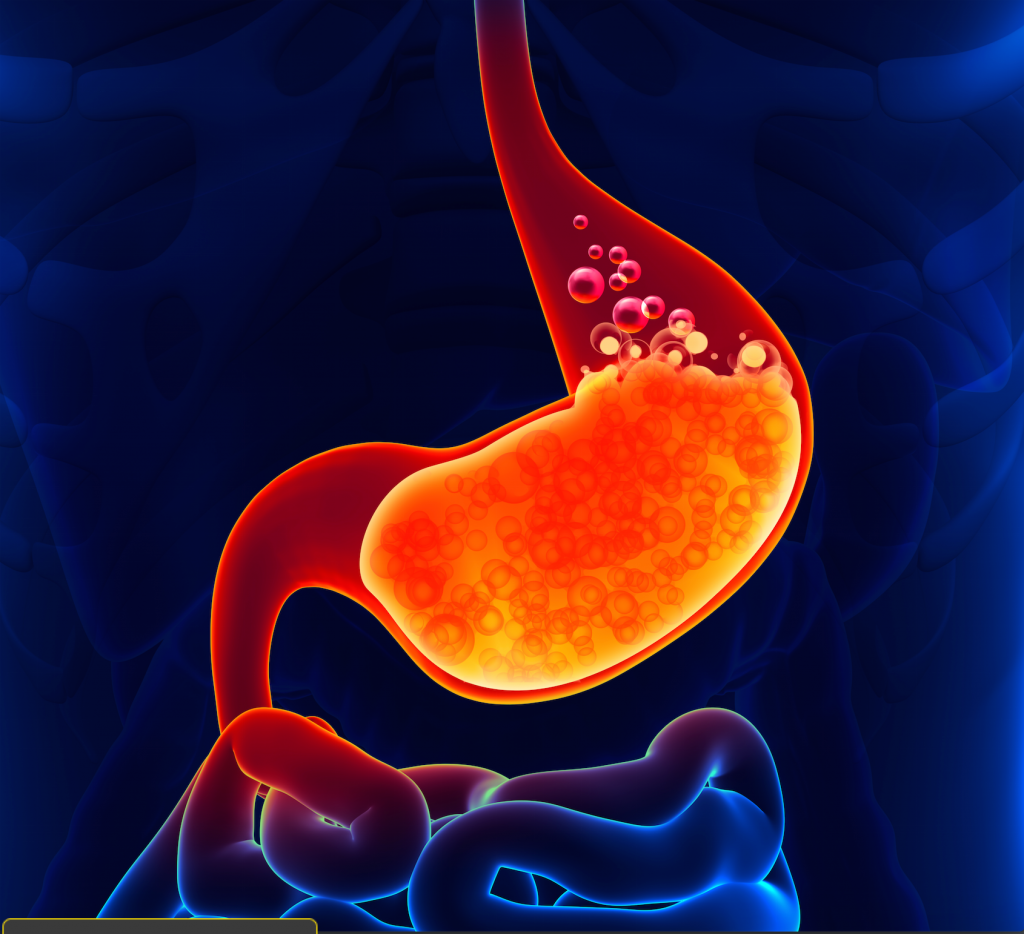
Stomach heat/fire describes underlying problems similar to inflammation and irritation of the stomach.
For example, The Chinese describe the rising nature of heat to describe the rise of stomach acid up into the esophagus.
This has a direct influence on our quality of sleep.
This is not only true in Chinese medicine. Data shows that heartburn and Gastroesophageal Reflux Disease (GERD) are common causes of sleeplessness.
In fact, it’s estimated as many as one in four people who experience sleep disturbances report night time heartburn!
Two Types Of Stomach Heat/Fire
There is an excess type and a deficient type.
The excess type of stomach heat/fire occurs with too much acid and inflammation of the stomach lining.
However, more common in is the deficient type.
This is caused by weak stomach function and/or low stomach acid causing the symptoms of acid reflux. How?
When stomach acid is not sufficient, the lower espophageal sphincter (LES) becomes lazy and not longer closes properly.
When this happens any amount of acid can go up and down the esophagus!
Another issue with low stomach acid is this. When food is being digested without the presence of sufficient stomach acid, digestive enzymes have a hard time being released from the pancreas to break down our food.
This causes gas, bloating and pressure in the stomach. Such pressure results in pushing the content in our stomach back up into the esophagus.
This is more than enough to affect a persons sleep. But, its important to distinguish between excess and deficiency by testing with betaine hydrochloride.
How to Treat Excess Type
Using diet, its important to avoid spicy foods, nightshade vegetables and carbohydrate rich foods. Avoid caffiene and peppermint teas.
When using Chinese herbal medicine, i commonly prescribe the following herbs for insomnia.
- Long gu (Fossilia Ossis Mastodi)
- Xie cao (Valarian)
- Suan zao ren (Semen Zizyphi Spinosae)
- He huan pi (Cortex Albizziae)
- Mu li (Concha Ostreae)
- Hai piao xiao (Endoconcha Sepiae)
- Wu mei (Fructus Mume)
- Zhi zi (Fructus Gardeniae)
- Ci shi (Magnetitum)
How to Treat Deficient Type
This often never gets detected or fixed because it’s completely counter-intuitive.
However, the data doesn’t lie. There are studies where 80% of 90 year old people have 0% stomach acid!
Stomach acid naturally declines as we age. However, ant-acids that further reduce stomach acid are commonly given to reduce symptoms.
Ant-acids may help the symptoms of reflux but it will actually make the underlying problem worse. How do we know this?
What happens when a patient stops taking the ant acids? The reflux comes back. This is because the underlying problem hasn’t been fixed.
In this situation, treatment must include strengthening the stomach. This includes increasing stomach acid using betaine hydrochloride and pepsin.
Diet is important too. Avoiding carbohydrate rich meals, caffeine and peppermint teas are a must. That is until the underling problems have been resolved.
When it comes to Chinese herbal medicines I often prescribe herbs such as:
- Xiang Sha Ping Wei San (Cyperus and Amomum Calm the Stomach Powder)
- Xiang Sha Liu Jun Zi Tang (Six Gentlemen Decoction with Aucklandia and Amomum)
- Huang Lian (Rhizoma Coptidis)
- Shan Zha (Fructus Crataegi)
- Huang Qin (Radix Scutellariae)
- Huang Bai (Cortex Phellodendri)
7. Kidney Insufficiency
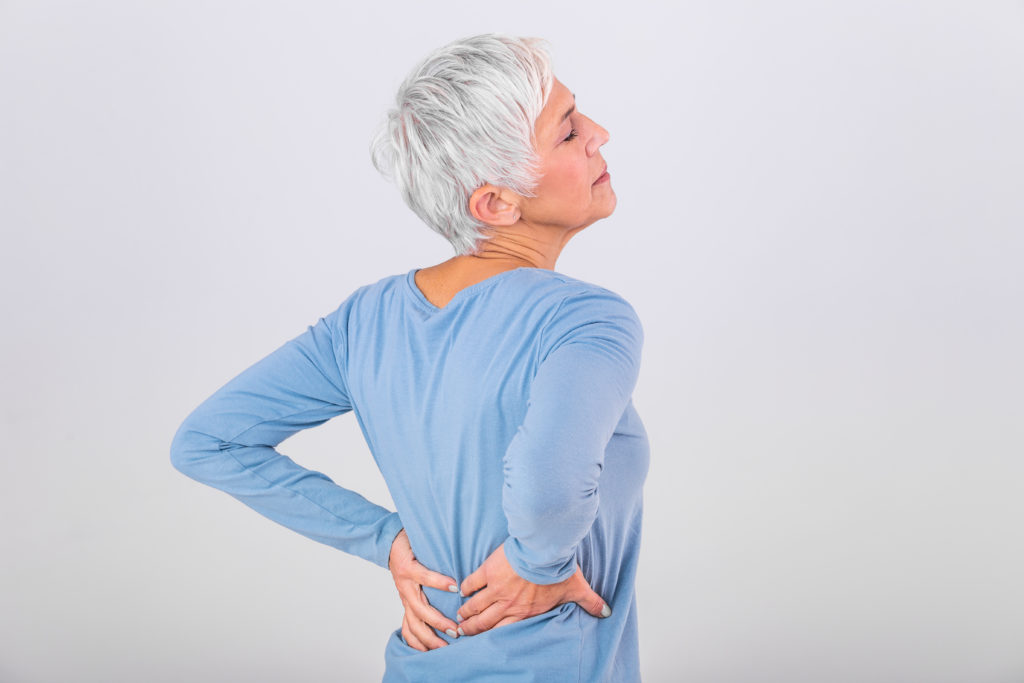
The Chinese have long associated the aging process with the declining functioning of the kidney.
Many women are familar with the symptoms of kidney insufficiency. These include hot flashes, night sweats, thirst, weak bladder and more.
This will wreak havoc on a woman’s sleep.
For men, problems from kidney insufficiency include impotence, frequent urination, low back pain, knee pain.
Kidney Insufficiency & Fight/Flight
Kidney insufficiency is also associated with the emotions of fight/flight. The outcome of this, is too much stress hormone being released into the blood stream. This can mess up our sleep!
How? With higher levels of cortisol in the blood, a person will wake early in the morning, often around 2-3am.
How To Treat Kidney Insufficiency
For Kidney insufficency accompanied with the symptoms of menopause and hot flashes. I often use some of the following herbs.
- Shan Yao (Rhizoma Dioscoreae)
- Zhi Bai Di Huang Wan (Anemarrhena, Phellodendron and Rehmannia Pill)
- Bai Hu Tang (White Tiger Decoction)
- Long Dan Xie Gan Tang (Gentiana Longdancao Decoction to Drain the Liver)
- Huang Lian Jie Du Tang (Coptis Decoction to Relieve Toxicity)
- Er Xian Tang (Two Immortals Decoction)
If the patient has a lot of stress and past history of mental/emotional trauma. I like the following herbs in different combinations depending on the patient.
- Long Dan Xie Gan Tang (Gentiana Longdancao Decoction to Drain the Liver)
- Zhi Bai Di Huang Wan (Anemarrhena, Phellodendron and Rehmannia Pill)
- Bai Wei Di Huang Wan (Kidney Qi Pills from the Golden Cabinet)
- Chai Hu Long Gu Mu Li Tang (Bupleurum plus Dragon Bone and Oyster Shell Decoction)
- Jia Wei Xiao Yao San (Augmented Rambling Powder)
- Hong Jing Tian (Radix Rhodiolae Crenulate)
To Summarise
9 Sleep preparaton sleps to get a deeper sleep.
- Avoid caffeinated food and drinks after 2pm
- Sleep in a dark and quiet room.
- Keep room temperature between 18-23
- Stick to a schedule. Go to bed the same time and wake up the same time.
- Sleep on your right side if you have a fatty liver, or are overweight.
- Ensure a regular and optimal palse rate
- Slow breathing down
- Treating muscle pain and cramps
- Limit the bedroom for sleep and intimacy only.
Underlying causes from a Chinese medicine perspective: Including
- Heart Blood Stasis
- Heart Fire
- Damp Heat with Blood Stasis in the Liver
- Heart Blood Deficiency
- Liver Heat/Fire
- Stomach Heath/Fire
- Ki insufficiency
Finally, if you have any questions, ask me a question in the comment section below and I will personally answer It for you.
About The Author
David is a registered Chinese medicine practitioner based in Melbourne, Australia. His major interests include heart disease, heart disease, fatigue, anxiety and insomnia
For more content, connect with David on Facebook, Instagram and YouTube. Read more articles here
If you got value from this article, please share this content with your friends and family
Sharing is caring!


